Mark (P) called me on Sunday suggesting we go out birding on Monday. As he had never seen a Pectoral Sandpiper and the one at Port Meadow was still wandering the floods when he called, it was obvious where we should go.
Weather is always a factor in birding and Monday morning was benign with a gentle southwest wind and sunshine heralding a classic autumn day, once the early morning mist had cleared. We revisited the same car park at Port Meadow as I had used on Saturday and made our way out to the flood.
Although there had been no news about the Pectoral Sandpiper so far this morning, we were soon re-assured on seeing four distant birders looking intently at the flood and when we joined them, sure enough there was the Pectoral Sandpiper, busily feeding on the further side of the shallow water.
I was keen to get better images of it than I had achieved on Saturday, when the weather was overcast and gloomy.Today could not have been more different and I felt optimistic.The other birders departed so we walked closer to the sandpiper and stood on the waterlogged ground as it fed contentedly and gradually came closer and closer and closer. It could not have worked better for us as the sandpiper fed unconcernedly within metres of us and looking an absolute picture in the morning sun.
Below is a selection of the images I took of this rare and welcome transatlantic visitor to Oxfordshire, the first for ten years on Port Meadow.
Eventually, even we had enough images, and looking off to the far reaches of the meadow I saw in the distance a large white heron standing in the middle of the grassy plain.It could only be a Great White Egret, my second in three days. It was certainly not there when we arrived and must have flown in while we were concentrating on the Pectoral Sandpiper. Great White Egrets are a very scarce visitor to Port Meadow so we opted to skirt around where the sandpiper was feeding and try to get closer to the egret.
As we walked further out onto the meadow we encountered a flock of Golden Plover.There must have been at least a hundred and fifty, hunkered down in the grass, apprehensive at our approaching them, their dull, buff gold upperparts effectively rendering them inconspicuous in the rough grass now turning from green to a winter yellow
Some of the flock took off, rising into a blue sky and wheeled overhead, calling gently, no more than a gentle whisper of sound passing between them, while others, a minority, chose to remain on the ground.
We had however got some excellent images of the sandpiper and Mark had yet another lifer in his burgeoning birding career. All was well in our world.

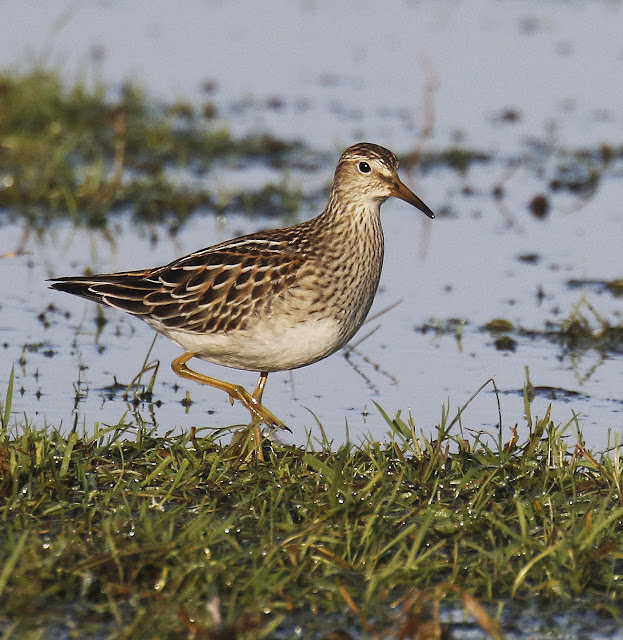

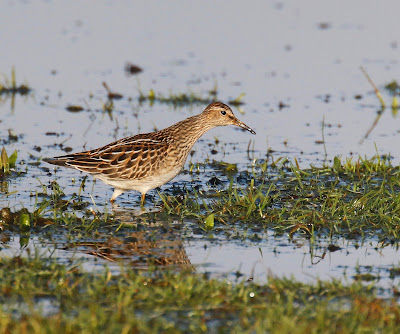
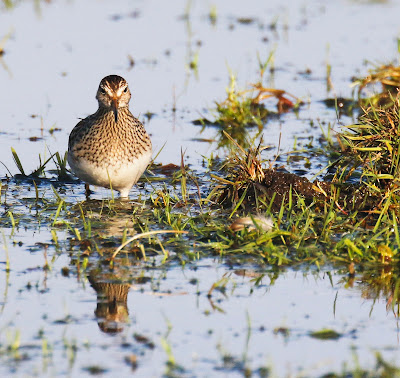





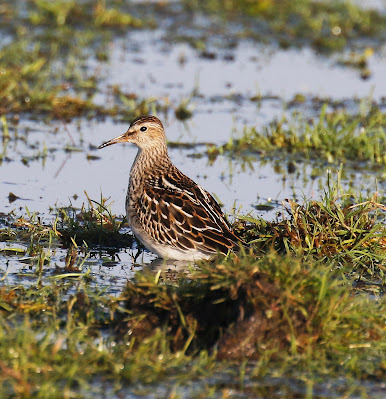



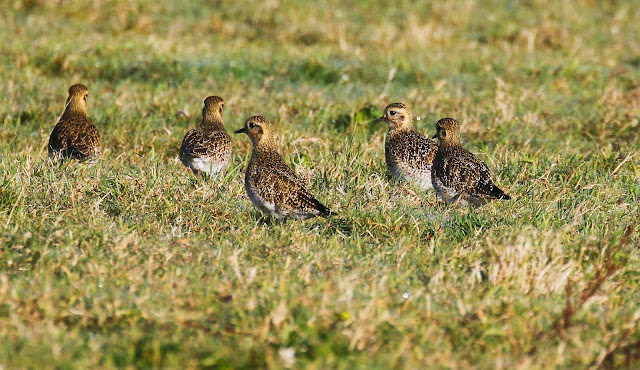
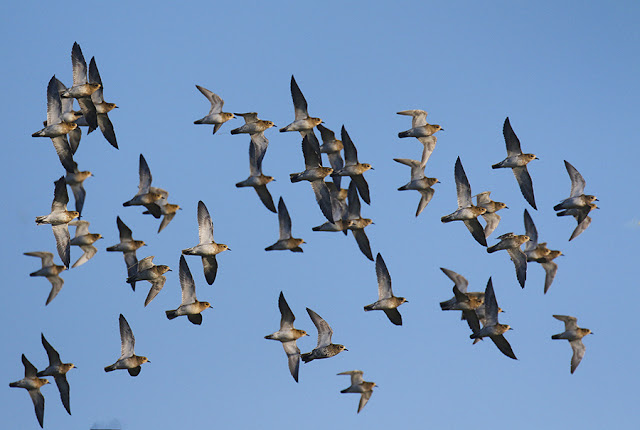
No comments:
Post a Comment